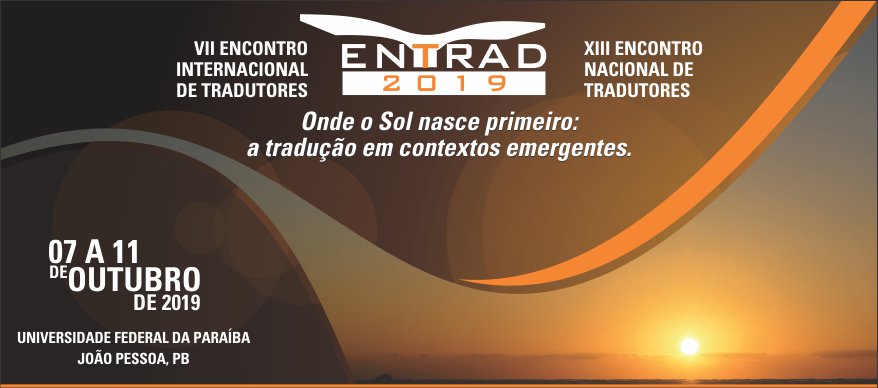Antes de se inscrever, leia as orientações AQUI
POLÍTICAS DE TRADUÇÃO E POLÍTICAS LINGUÍSTICAS
POLITICS OF TRANSLATION AND LANGUAGE POLICY
Silvana Aguiar dos Santos
UFSC
silvanaaguiardossantos.etils@gmail.com
http://lattes.cnpq.br/2132093144348796
Patrícia Tuxi
UnB
ptuxiinterprete@gmail.com
http://lattes.cnpq.br/8079466991155659
Rodrigo da Rosa Pereira
FURG
rrpereira83@gmail.com
http://lattes.cnpq.br/1050977236515504
Idiomas de trabalho | Work languages: Português e Libras
Resumo: No Brasil, a interface Políticas de Tradução e Políticas Linguísticas é um campo de pesquisa emergente para os Estudos da Tradução. A legislação brasileira assegura a presença do tradutor e do intérprete de diversas línguas, sejam elas estrangeiras ou brasileiras (como no caso as línguas de sinais e as línguas indígenas). Com a crescente globalização e os deslocamentos territoriais, culturais e linguísticos, em função da imigração, além do aumento significativo das políticas linguísticas em torno das línguas de sinais e das línguas indígenas, torna-se fundamental um espaço acadêmico que problematize políticas de tradução a serem adotadas diante do cenário proposto. Essa discussão é importante, na medida em que coloca a tradução e a interpretação de serviços públicos e/ou contextos comunitários em diálogo, reunindo diferentes pares linguísticos que compartilham tensões, conflitos e negociações políticas, linguísticas e culturais em seus respectivos contextos de atuação. As bases teórico-metodológicas fundamentam-se em autores como: Schäffner (2007), Tymoczko (2007), Meylaerts (2010) e Panda (2013), os quais apresentam importantes contribuições na chave políticas de tradução e políticas linguísticas no contexto internacional, e Wyler (2003), Santos e Zandamela (2015), Oliveira e Silva (2017), Noci (2017), Gorovitz (2017), Guerola (2017), Santos e Francisco (2018) no contexto nacional. No caso brasileiro, tais autores discutem e problematizam Políticas de Tradução e/ou a tradução e suas implicações políticas na relação com imigrantes, refugiados, comunidades surdas e comunidades indígenas, dentre outros temas. Segundo Canagarajah (2005), o olhar atual da área da política não se restringe mais a aspectos teóricos e linguísticos estruturais, mas sim a um estudo heterogêneo que aborda questões sociais em contextos nacionais e pós-coloniais, visando alcançar níveis macro e micro de intervenção. É nesse universo que Política de Tradução se faz presente. Para Spolsky (2004) deve ocorrer uma aproximação entre a prática, que deve ser entendida como uso da língua, sua constituição ideológica e cultural e a política compreendida como gestão e direcionamento social da mesma. Todos esses elementos são chaves na pesquisa sobre Políticas de Tradução em interface com Políticas Linguísticas e atravessam não somente as investigações acadêmicas, mas também a atuação profissional dos tradutores e intérpretes que circulam nesses espaços. Portanto, o presente simpósio tem por objetivo reunir pesquisadores que estejam produzindo pesquisas relacionadas a Políticas de Tradução e Políticas Linguística nos campos da Linguística, Estudos da Tradução, Sociologia, Antropologia, Direito e áreas afins. Espera-se possibilitar debates que promovam uma nova configuração da fronteira hoje existente entre Políticas Linguísticas e Políticas de Tradução e assim oportunizar uma nova relação. O simpósio reunirá até dez pesquisas ligadas ao tema no qual os apresentadores terão de 15 a 20 minutos para realizarem suas apresentações. Ao final das apresentações, haverá cinco minutos dedicados às perguntas por parte dos participantes do simpósio.
Palavras-chave: Políticas de Tradução, Políticas linguísticas, Contextos emergentes
Abstract: In Brazil the interface of the Politics of Translation and Language Policy is an emerging field of research in Translation Studies. Brazilian law ensures the presence of the translator and the interpreter of several languages, whether foreign or Brazilian languages (as in the case of sign languages and indigenous languages). With the increasing globalization and territorial, cultural and linguistic displacements due to immigration, in addition to the significant increase in language policy for sign languages and indigenous languages, an academic space to problematize the translation policy to be adopted in this scenario is seen as essential. This discussion is important as it puts into dialogue the translation and interpreting of public services and/or community contexts and brings together different language pairs sharing political, linguistic and cultural tensions, conflicts and negotiations in their respective settings. The theoretical-methodological bases follow authors such as Schäffner (2007), Tymoczko (2007), Meylaerts (2010) and Panda (2013), who have important contributions with regard to Politics of Translation and Language Policy in the international context, and Wyler (2018), Gorovitz (2017), Guerola (2017), Santos and Francisco (2018) in the national context. In the Brazilian case the authors discuss and problematize Politics of Translation and/or the political implications of translations in relation to immigrants, refugees, deaf communities and indigenous communities, among other topics. According to Canagarajah (2005) the current view of the area of politics/policy is no longer restricted to structural and linguistic aspects but rather to heterogeneous studies that address social issues in national and postcolonial contexts in order to reach macro and micro levels of intervention. It is in this universe that Politics of Translation is made present. For Spolsky (2004) there must be an approximation between the practice, which should be understood as the language use, its ideological and cultural constitution, and the politics understood as management and social direction thereof. These are key elements in the research on Politics of Translation in interaction with Language Policy which go beyond academic investigations to include the professional work of translators and interpreters who take part in these spaces. Therefore, the symposium aims to bring together researchers associated with the Politics of Translation and Language Policy in the fields of Linguistics, Translation Studies, Sociology, Anthropology, Law, and related fields. Discussions are expected to promote a new configuration in the border that exists today between Politics of Translation and Language Policy and thus to enable a new relationship. The symposium will gather up to ten studies related to the theme in which the presenters will have 15 to 20 minutes to make their presentations. At the end of the presentations there will be five minutes for questions.
Keywords: Politics of Translation, Language Policy, Emerging contexts
Antes de se inscrever, leia as orientações AQUI
